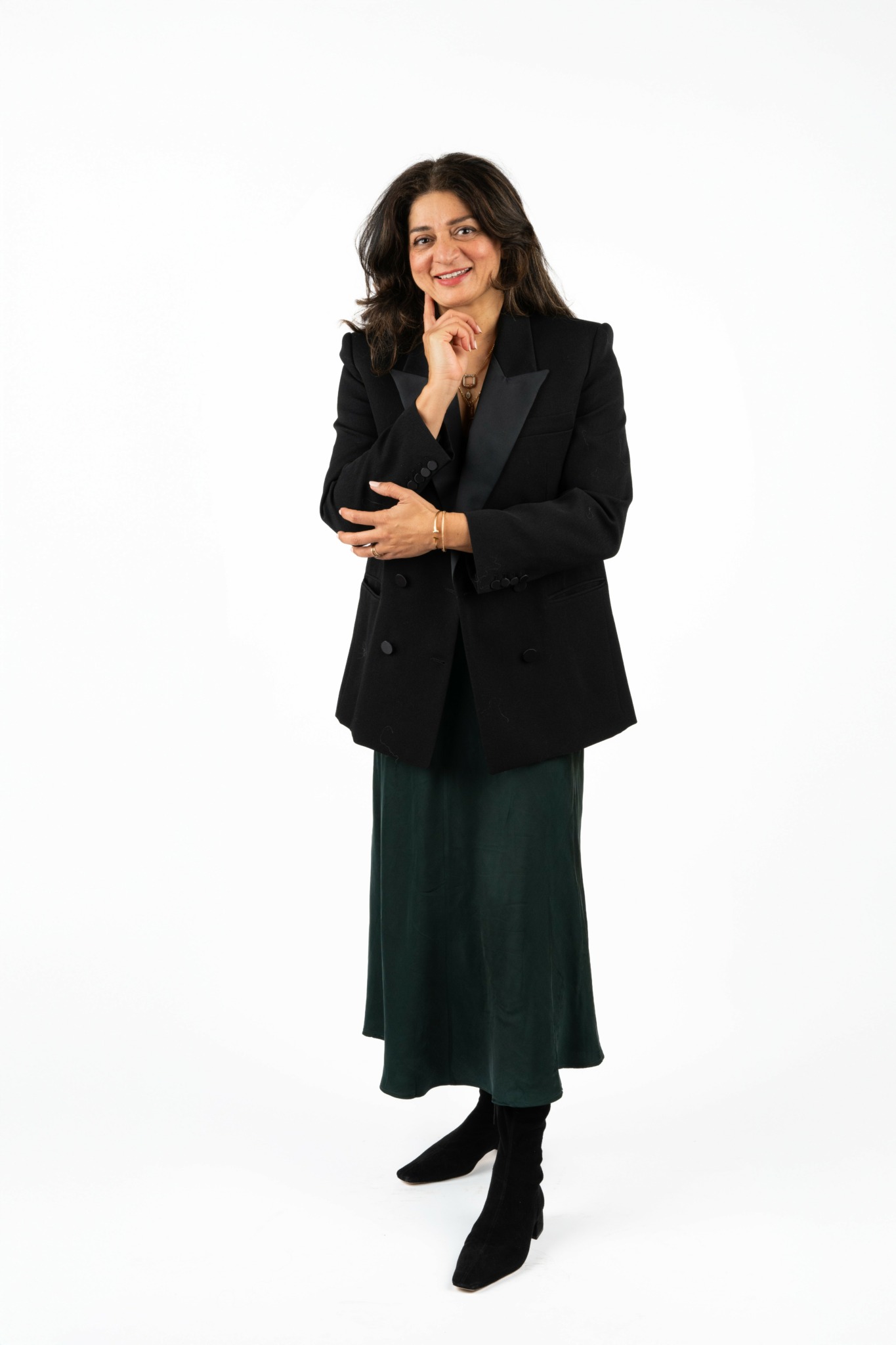We’re excited to introduce you to the always interesting and insightful Saira Khan. We hope you’ll enjoy our conversation with Saira below.
Hi Saira, thanks for joining us today. We’d love to hear about a project that you’ve worked on that’s meant a lot to you.
I started a literary salon in 2022 as a third space where readers and writers could gather to listen to each other’s stories, take the mic to speak their own, mingle and meet, be surrounded by visual and musical art. I wanted to create a lush environment where we allow ourselves to exist artistically. And I wanted to do it where I lived – the urban village of Issaquah, 20 mi east of Seattle that recently was designated a Creative District, as artists flee increasingly unlivable big cities to places closer to nature, like Issaquah.
Literary Nights emerged like a moment from “The Little Princess,” a novel by Frances Hodgson Burnett, when a young, impoverished girl who works all day cleaning a rich girls Boarding School falls asleep in her bedroom in the garret, hungry and cold. Impossibly, she wakes to a warm glow in the fireplace and a fine table-clothed display of delectable pastries, all because she never gave up her belief in goodness in spite of her dark and impoverished life.
The online lives we now live offer us a kind of impoverishment of physical matter: we cannot see the fabric of others’ skins, hear the tone of their voice, inhale the air they just exhaled. We are removed from each other through the medium of tech. We toil on medium screens and we go home to look into our small screens and big screens, all our activities being captured by the huge machinery of artificial intelligence so our thought processes can be replicated and made redundant.
As we live through these times, used by corporations, isolated from each other and relying on tech, most of our writing and reading is done on the on-line comments sections of corporate social media that is tracking our emotional and artistic outpourings to train AI. Enter the literary salon: an analog way to unplug and connect to each other in a more real way.
Literary Nights take place at a 135-year-old train depot, haunted by the old ghost of the vengeful station master, now filled with literary musings, spoken word, op-eds, diary entries and more. Literary Nights is free and accessible, just like the salons of 16th century France that did not charge a ticket but provided hospitality to artists of all social backgrounds – hosted by a wealthy person. Literary Nights funds itself through public grants and individual donors, and we want to keep it free and accessible, like the salon or library, a true space without transactional motives. A space radically inclusive that promotes radical self-expression.
As a writer myself, I wanted to find ways to share my writing more immediately, and I wanted to listen to people read their writings. I grew up on oral storytelling in a Pakistani immigrant family. Hearing stories affects our brains us differently. The sound of someone’s voice, the resonance of their words telling a familiar story, yet slightly altered each time. The feedback one gets from reading their writings out loud – did the audience laugh and sigh at the right parts. Did the audience’ breath change? Did we synchronize our heartbeats over the three hours we are together?
Sometimes I am asked: is this event primarily for writers? Yes, but also people who like to read, who like to people, or to Audible. People who want to be in community with more meaningful speech. In many ways, we’re all writers now: of emails, social media comments, TPS reports. Global literary rates are 87% in 2025 compared to 56% in 1950. The advent of email in the aughts turned everyone into a writer. Yet 54% of American adults only read at a 6th grade level. One cause could be the lack of exercising the muscle of deeper creative listening, reading and writing.
When we take the time to write down something more meaningful (perhaps a little longer than a witty clapback on social media) it impacts our thinking, our ability to express our thoughts and emotions and creates a more vulnerable sharing. Literary Nights invites people to read all sorts of narrative forms. One of our attendees read the medical prep instructions to their bypass surgery. Readers have read in pidgin, readers have explained existentialism as used by Republican propaganda, readers have shared their fears of losing a child to a wolf on a hike.
Art is essentially about the creative process, not just the product which can be sold. What if we could understand our power to create and connect through that creation immediately. What if we could luxuriate in our human birthright to creativity, to storytelling, to creating our narratives – and use that power to question narratives imposed upon us by regimes of control and self-promotion. Literary Nights offers a forum to do just this.
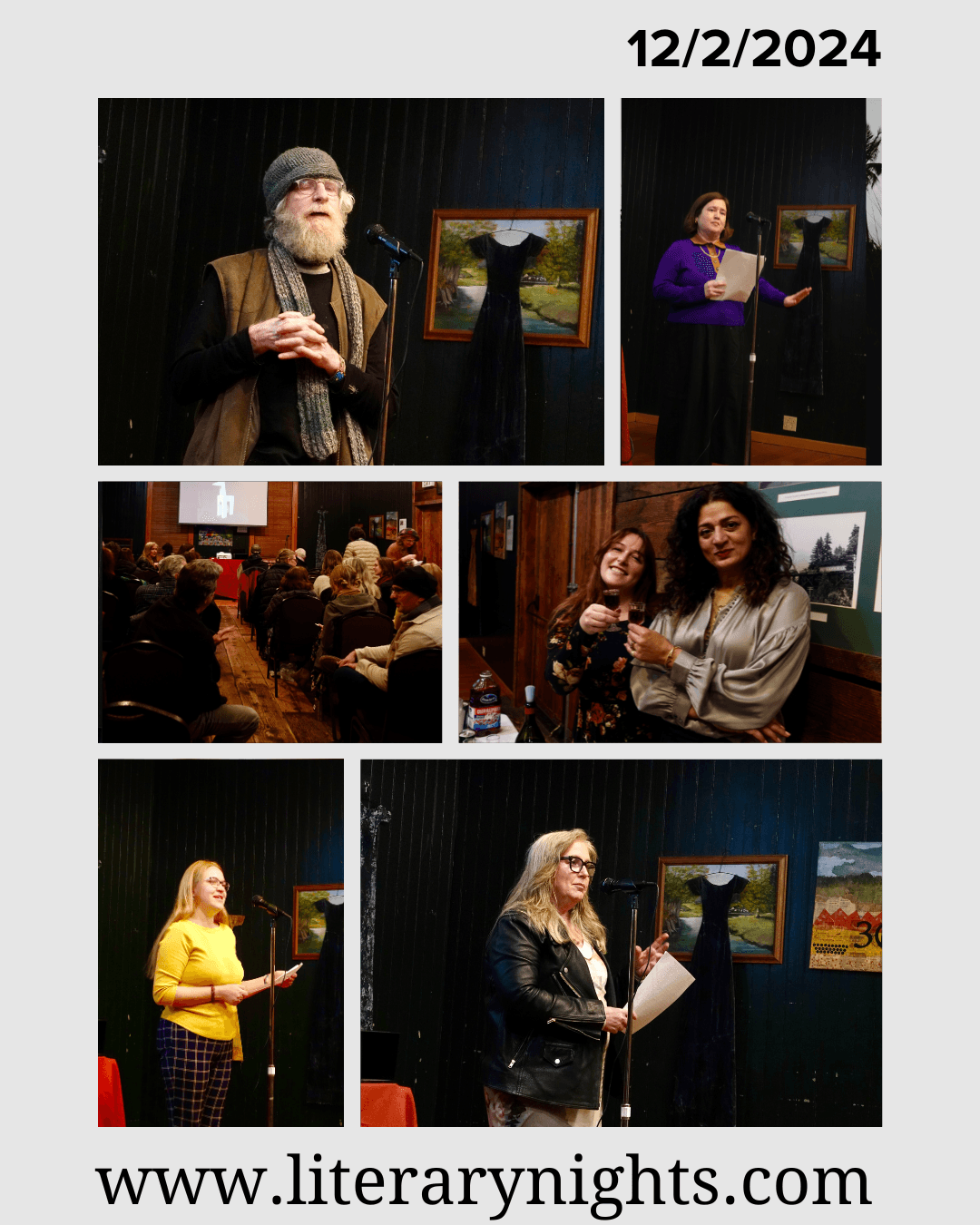
Saira, love having you share your insights with us. Before we ask you more questions, maybe you can take a moment to introduce yourself to our readers who might have missed our earlier conversations?
We’re just barely a brand. Our name Literary Nights was deliberately chosen as language that’s common usage. We’re simply a night where we explore our literariness, come together as literati. Being literati is a new kind of luxury – taking the time to read, write, listen, daydream. Our idea is not so much to be a brand but to be an invisible force for changing the country’s moral-emotional stance by offering a space in our community and inspiring other communities to do the same by publicizing our events on social media. We do not teach writing. We do not offer space to practice writing. We simply have salons. We barely offer critique to make the writing better. The writer, we trust, will know, will learn, when they listen to their writing next to everyone else’s. We do not try to become better. We are already good. We will tell you our stories. With our bold voices, our shaking hands, our pieces of marked paper, our bodies stomping around the stage, we will lift our pages to the sky.
Community readings are an antidote to the solitary author reading. Currently, when authors have a book out, they will do a book tour and show up at bookstores ready to read from their book and sell their book. With a million books being traditionally published annually, many of these readings have a small turn out – perhaps 5 or 20 or even, in some cases, none. Literary Nights invites authors to read from their books, even recently published books, in more of a community format. Published authors read alongside novices, hobbyists. It’s an egalitarian space, breaking the boundaries between esteemed published author and everyday storyteller. Of course, we still honor and celebrate the devotion to story craft that many writers undertake when they set out to publish a book.
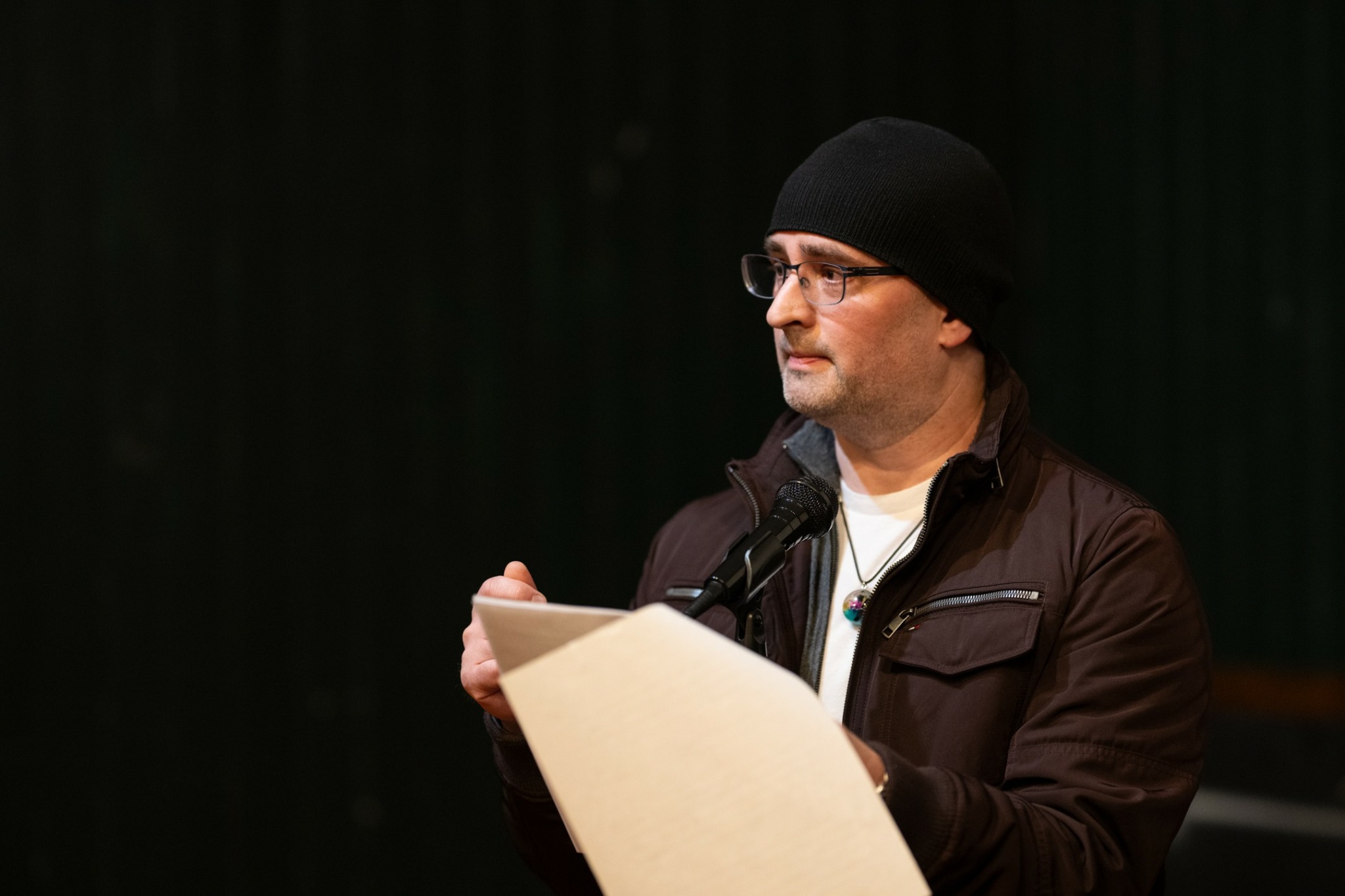
What do you find most rewarding about being a creative?
As a writer myself, what I love most about writing is falling into these little holes when I’m engaged in story. The sense of existing outside of time, of entering another space. Writing (and reading) stories are a portal into other realms. At Literary Nights, we aim to create an energetic portal. We are surrounded by wooded mountains, and the edge of undeveloped land, in nature. We are in a valley. We are in a building that was, and still is, an access point. The idea of space travel already exists – through story.
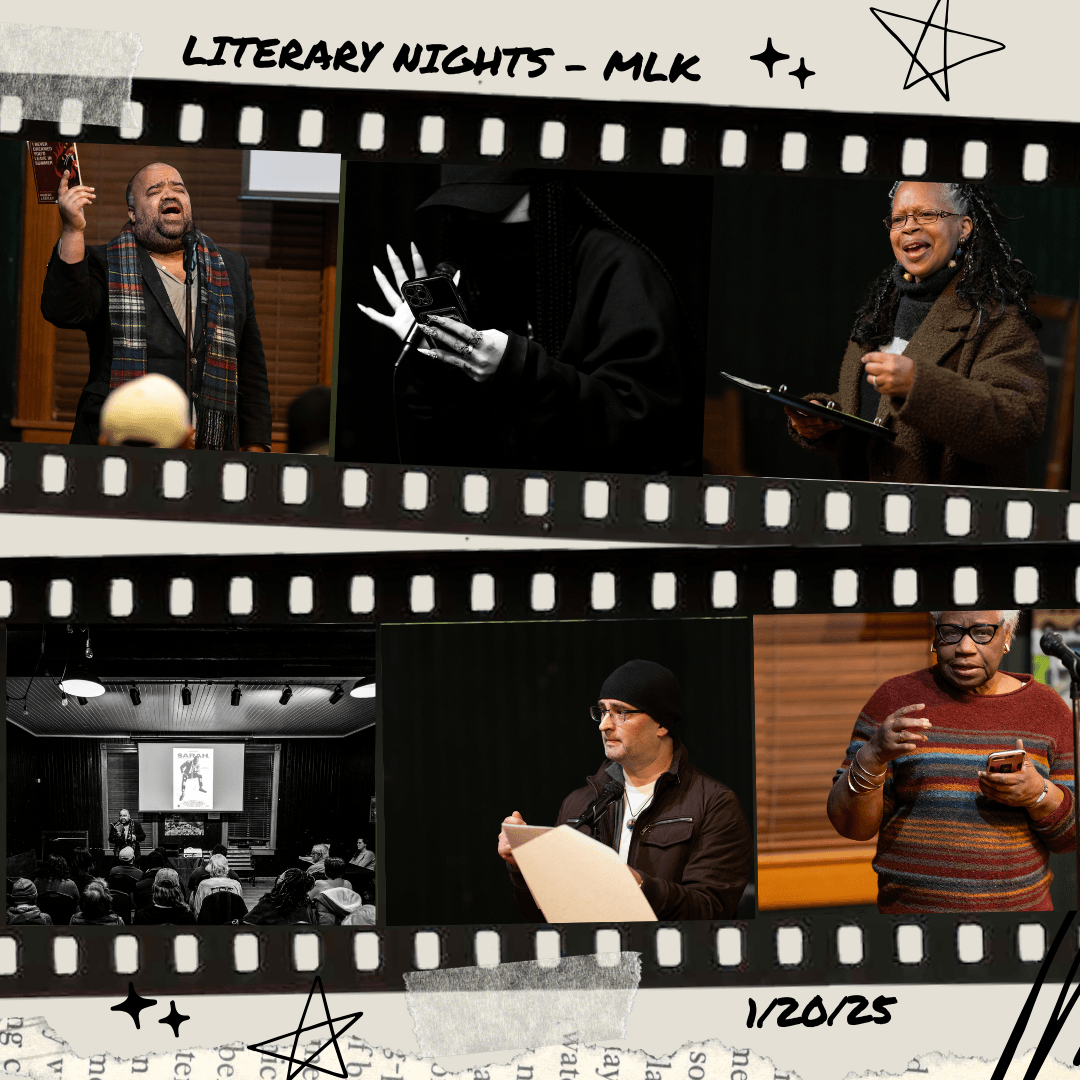
Is there a particular goal or mission driving your creative journey?
My goal has always been to transcend cliché while embodying its truth. When I write a good sentence, I have a sense that I’ve created something organic, something that has always existed.
And yet I also love to ride on the waves of songs whose very titles contain the most cliché’s – Birds of a Feather and Wild Horses to name a few. It’s something that musicians can get away with, because they’re dealing with sound waves and rhythm directly and lyrics secondarily. Writing also works with rhythm, yet in a less primary way.
Each salon at Literary Nights has a different vibe because we work with invisible themes, bring together a different collection of writers, visual artists, musicians, filmmakers and photographer. Our vision is a world more connected through intimate sharing of our stories.
Contact Info:
- Website: https://www.literarynights.com
- Instagram: @litnightswa
- Facebook: https://www.facebook.com/groups/966490338429353
- Youtube: https://www.youtube.com/channel/UCukBxoRxWN1c_HO3XNGWQBw
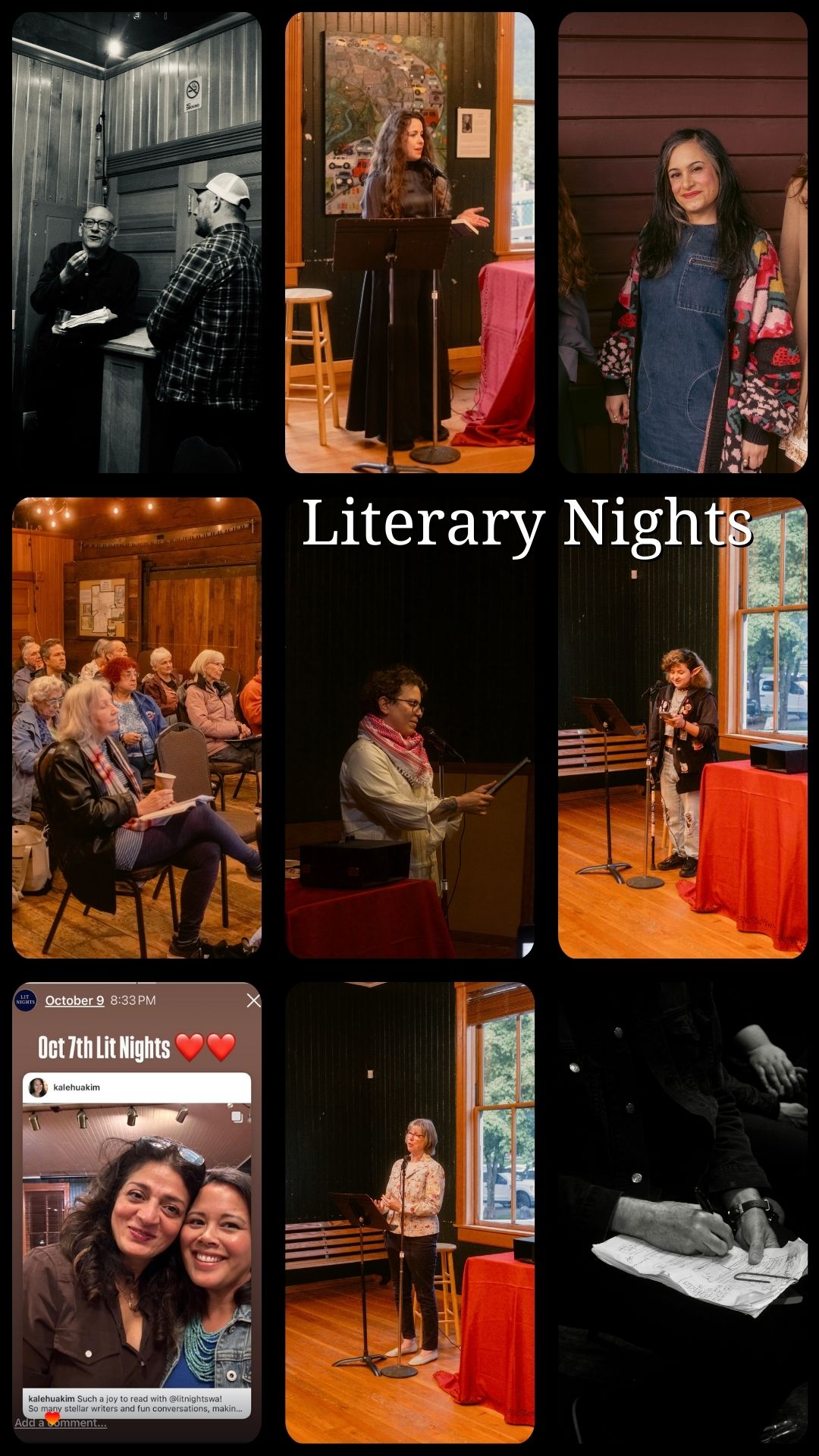
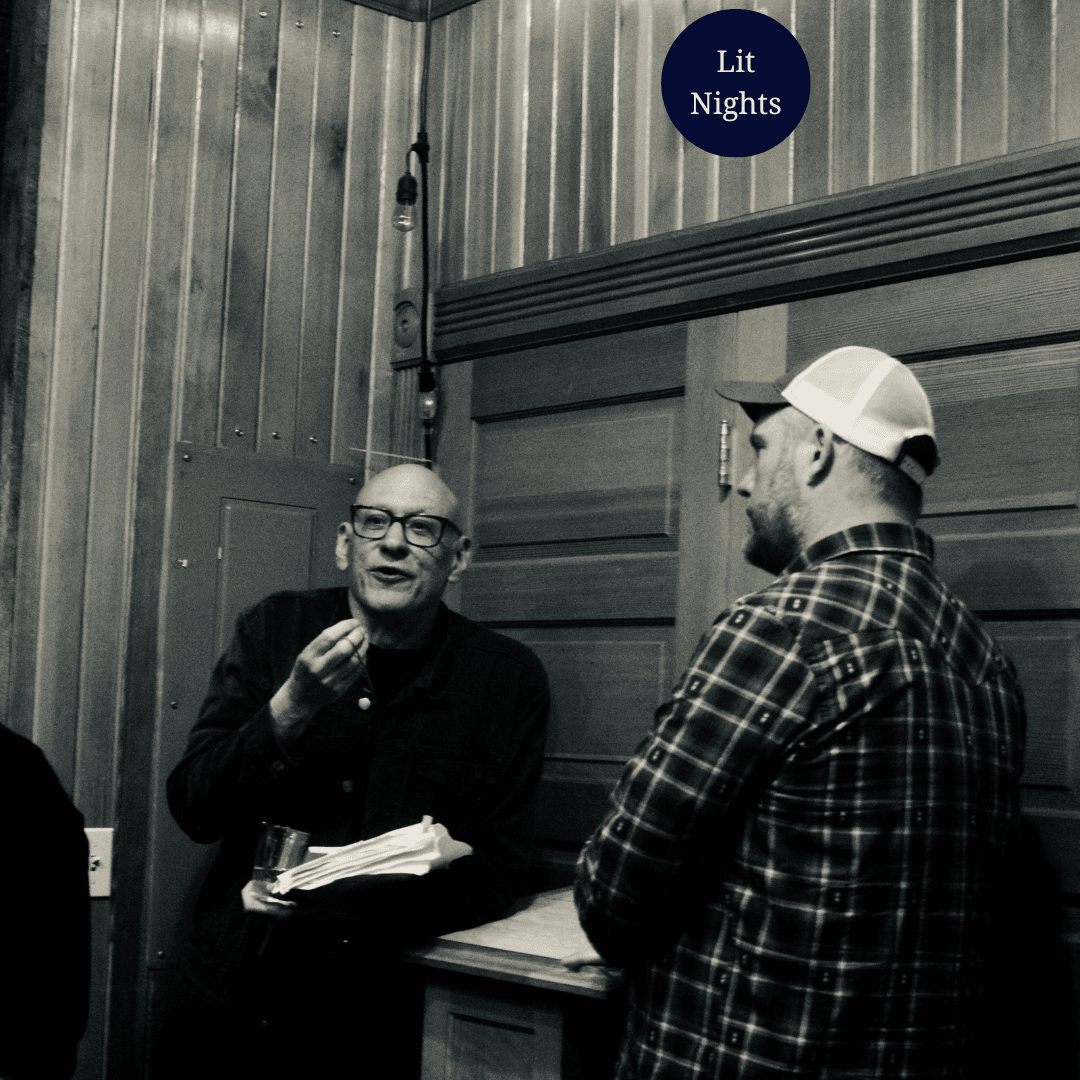
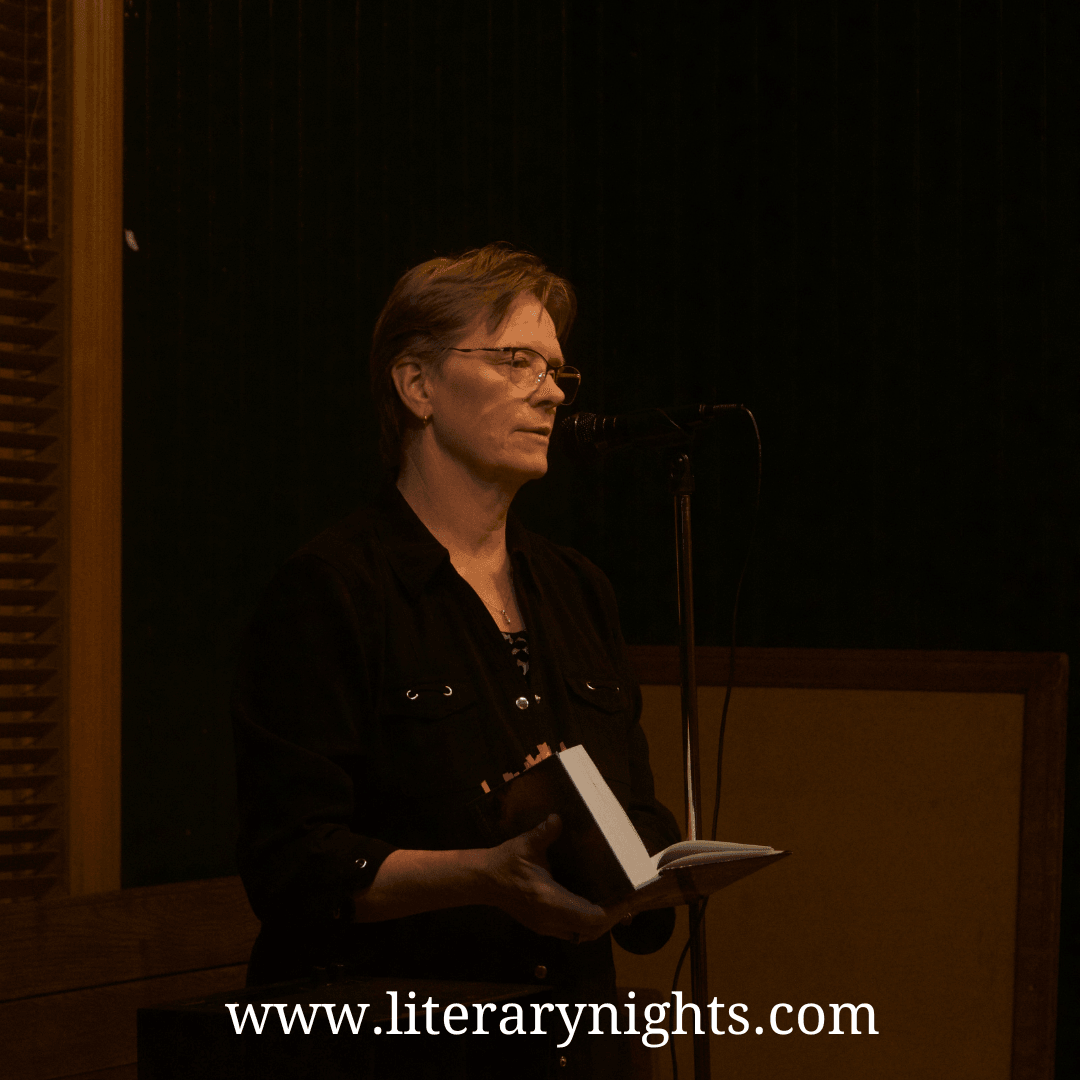
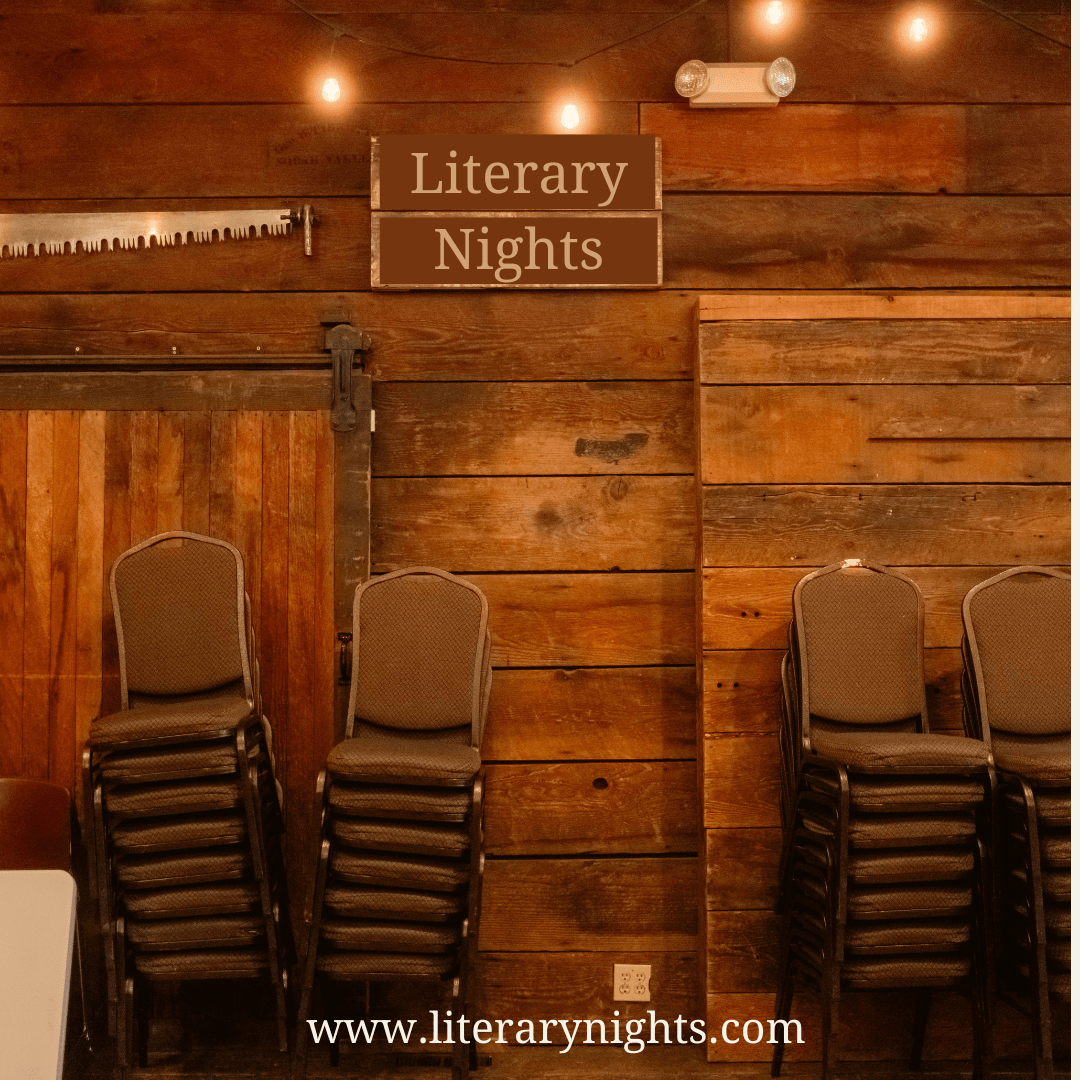
Image Credits
1. Sam Lewis
2. Vivian Chang
3. Sam Lewis
4. Sam Lewis
5. Haleema Shaikh
6. Haleema Shaikh
7. Haleema Shaikh
8. Alycia Rock
9. Sam Lewis


